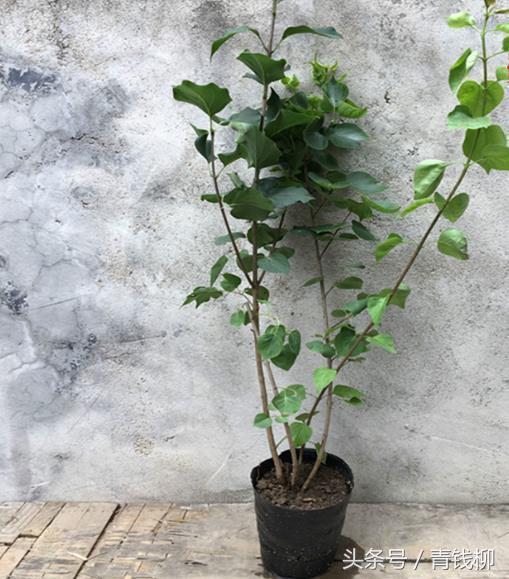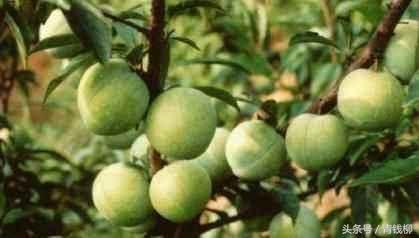Cultivation techniques of Organic Blueberry in Dandong City, Liaoning Province

Cultivation techniques of Organic Blueberry in Dandong City, Liaoning Province
Dandong City, Liaoning Province is the starting point of the northern section of China's coastline, which is located in the southeast of Liaoning Province. This area not only has good water quality, but also has very rich forestry resources. According to statistics, the forest coverage rate in Dandong area can reach 66%, and the overall ecological environment is good, which is very suitable for growing organic blueberries.
1 factors to be considered in the cultivation of organic blueberry
1.1 Sunshine
Light time and intensity are very important for the growth of organic blueberries. when the light conditions can meet the growth requirements of organic blueberries, the fruit will mature at an appropriate time, and the sugar content and ripening rate are also relatively good.
1.2 Water
The precipitation in the most suitable area for blueberry growth is 1200 mm per year, which ensures that blueberry has sufficient water during the growth period and will not be in a state of water shortage, and the monthly precipitation must exceed 100mm. In the Meiyu period, the fruit quality is relatively poor, soil water content of about 70% is conducive to organic blueberry flower bud formation, there will not be flower bud dysplasia or rotting root phenomenon.
1.3 soil
The soil pH value of blueberry planting should be controlled below 6.0,4.5 or above. If the pH value of the soil is more than 6.5. it belongs to the neutral soil, and the organic blueberry is prone to poor growth and low survival rate. Therefore, the neutral soil is not suitable for growing organic blueberry. In addition, it is necessary to ensure that the soil has good ventilation and water retention.
2 Analysis of cultivation techniques of organic blueberry
2.1 Select a suitable cultivation site
The overall quality of ecological environment in Dandong area is good, and it is not seriously polluted, and the content of heavy metals will not affect the growth of organic blueberries. At the same time, it is necessary to ensure that the air is fresh, the sun is sufficient, the soil is acidic, and it is a sandy soil with good ventilation and water retention, and the content of various pollutants is also within the standard state, for example, the content of CO 2 is less than 0.15m g/m2 every day, and the content of nitrogen oxides is less than 1m g/m2 every day.
2.2 planting high quality seedlings
High-quality seedlings are the basis for improving the survival rate and fruit quality of organic blueberry seedlings. therefore, it is necessary to select suitable organic blueberry varieties according to the geographical environment of Dandong area. When selecting seedlings, it mainly depends on whether the roots of the seedlings are developed and complete. if the roots are yellow and white, it is proved that the quality of the seedlings is good and suitable for planting.
2.3 soil improvement
Soil improvement is a necessary work for the cultivation of organic blueberries. The main materials used are sawdust, rice husk, peat and so on. They are ridged and cultivated in the planting land, and the specific height is 30cm. Specific methods: 667m2 improved the soil with humus soil of 10-15 m3 and fermented sawdust of 30-35 m3, in which the amount of fermented sawdust was adjusted according to the soil viscosity; the amount of sulfur powder was determined according to the pH value of the mixed soil; ridging was carried out after sprinkling the improved soil material on the soil surface, and the most suitable width of the upper ridge was 70cm.
2.4 planting site management
First, in the whole growth process of organic blueberries, from seedling planting to maturity, the water demand is from less to more, and then from more to less. Blueberry sprouting stage is the most need to replenish water, followed by flowering stage, fruit expansion stage, and finally vegetative growth period. In order to control the soil moisture within a suitable range, drip irrigation is needed to supply water. When blueberries are harvested, the amount of water needs to be controlled.
Second, the fertilization of organic blueberries is mainly the use of farm manure, that is, cake fertilizer, compost, organic compound fertilizer and so on, not only the combination of chemical fertilizer and organic fertilizer, but also organic fertilizer. The last topdressing of organic blueberries was completed within 30 days before the harvest time, and the ratio of organic nitrogen to inorganic nitrogen should be controlled within 1 ∶ 1. Taking the age of blueberry trees as the basic reference condition, the fertilization was carried out step by step, and the first fertilization based on nitrogen fertilizer was carried out within 10-15 days before germination, and the second fertilization based on nitrogen, phosphorus and potassium fertilizer was carried out in May after fruit setting. The purpose of the third fertilization, mainly phosphorus and potassium fertilizer, was to promote fruit growth and improve fruit quality and yield 10 days before harvest.
2.5 Prevention and control of diseases and insect pests
Diseases and insect pests are very easy to appear in the whole growing period of crops. if they are not effectively controlled, the crop yield will be affected if they are not effectively controlled, and if serious, there will be no harvest. For organic blueberries, the main pest control measures are agricultural measures, physical measures and so on. Agricultural measures to prevent disease mainly refers to a certain scientific rationality in planting, fertilization and watering to improve the resistance of blueberry itself. Physical control is mainly through the armyworm armyworm. Chemical control refers to the use of targeted pesticides to reduce the impact of insect pests. Weeding is mainly to prevent weeds from "sharing" the effects of organic blueberries, so it needs to be controlled within 20cm.
3 conclusion
In short, if you want to grow organic blueberries, you need to choose places with sufficient sunshine, less water impurities and suitable soil viscosity, combined with the key points of organic blueberry cultivation techniques, so as to improve the yield of organic blueberries and ensure their fruit quality. promote the development of organic blueberry industry in Dandong.
- Prev

Application techniques of Container Seedling and forestation of Syringa
Lilac container seedling and afforestation application technology lilac belongs to the genus Syringa of Oleaceae, deciduous shrubs or small trees, also known as lilac, dragon cypress and so on. Is one of the famous ornamental flowers and trees in the garden. Take the Qinling Mountains as the center, north to Heilongjiang, south to.
- Next

Key techniques for High quality and High efficiency cultivation of Nai Youmanai in Ningde City
The key technology for high quality and efficient cultivation of Youmanai in Ningde City is a famous, special and excellent fruit in Fujian Province. It has a long history of cultivation and is mainly distributed in Gutian, Fu'an and surrounding counties and cities in eastern Fujian. The peach is shaped like a plum and the fruit is shaped like a peach.
Related
- Wuhan Hospital Iron Tree Blooming Result Was Instantly Frightened by the Gardener Master
- Which variety of camellia is the most fragrant and best? Which one do you like best?
- What is the small blue coat, the breeding methods and matters needing attention of the succulent plant
- Dormancy time and maintenance management of succulent plants during dormancy
- Minas succulent how to raise, Minas succulent plant pictures
- What are the varieties of winter succulent plants
- How to raise succulent plants in twelve rolls? let's take a look at some experience of breeding twelve rolls.
- Attention should be paid to water control for succulent plants during dormant period (winter and summer)
- Watering experience of twelve rolls of succulent plants
- Techniques for fertilizing succulent plants. An article will let you know how to fertilize succulent plants.

